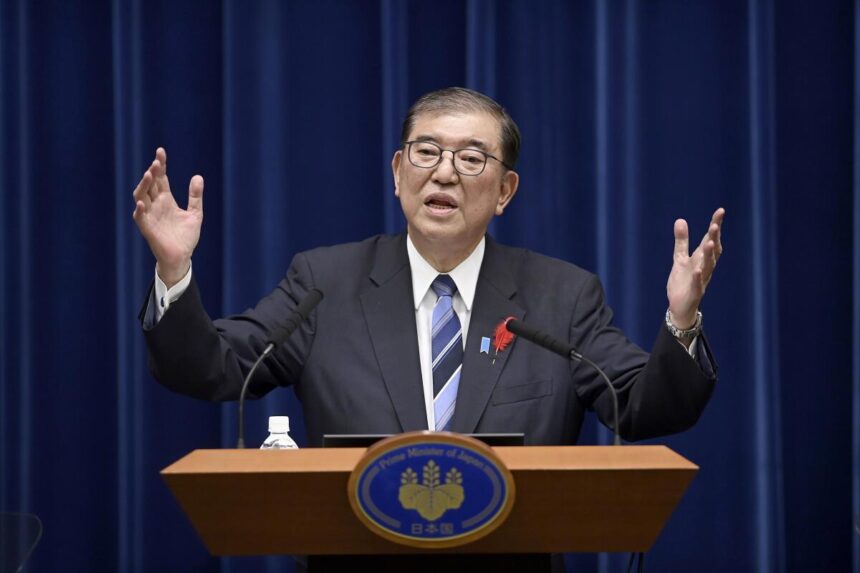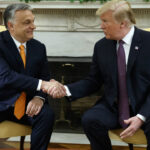Summary and Additional Remarks by Geopolist | Istanbul Center for Geopolitics:
Japan’s newly appointed Prime Minister, Shigeru Ishiba, has proposed a NATO-style nuclear-sharing agreement with the United States to enhance deterrence against regional threats posed by China, North Korea, and Russia. He has advocated for the establishment of a “Asian NATO,” a regional defence alliance founded on the principles of mutual defence, akin to NATO in Europe. Ishiba’s idea arises amidst escalating geopolitical tensions in the Asia-Pacific, and he contends that such an alliance is essential to confront the increasing military might of these nations.
Ishiba’s proposals have incited considerable controversy, especially as they contest Japan’s enduring post-World War II nuclear policies. For decades, Japan has maintained the “Three Non-Nuclear Principles,” which forbid the possession, development, and introduction of nuclear weapons within its territory. These principles were established following the destruction wrought by the atomic bombings of Hiroshima and Nagasaki and have since influenced Japan’s pacifist position.
Nonetheless, Ishiba contends that the conventional U.S. extended deterrence, which entails the provision of nuclear protection to its regional allies, may no longer adequately meet the evolving security landscape in Asia. He cites the expanding military cooperation between Russia and North Korea, together with China’s swiftly modernizing nuclear arsenal, as justifications for the necessity of a more direct nuclear-sharing agreement. Ishiba’s proposal for a “Asian NATO” highlights the need he perceives in establishing a regional collective defence system.
This plan, however, may have extensive ramifications. On one hand, it may enhance regional security by offering a more formidable deterrent against rivals, so diminishing the probability of aggression from North Korea or China. Conversely, it poses a risk of heightening tensions with China, which is already apprehensive about Japan’s growing military capabilities and its partnership with the United States. Beijing may perceive this action as a direct challenge to its strategic interests, potentially resulting in an arms race or further militarization of the Asia-Pacific area.
The domestic reaction to Ishiba’s suggestions has been varied. Some conservative elements within Japan’s government advocate for a more robust defence posture, while others express apprehension regarding possible public backlash, given the historical opposition of the Japanese populace to nuclear weapons stemming from the nation’s distinct experience with atomic warfare. Moreover, Japan’s pacifist constitution, which constrains the functions of its Self-Defense Forces, may present legal obstacles to enacting such a substantial alteration in defence policy.
Moreover, Ishiba’s suggestion for a “Asian NATO” prompts inquiries on the operational dynamics of such an alliance, considering the varied political and security objectives of regional nations. In contrast to Europe, where NATO functions well as a collective defence entity, Asia exhibits a deficiency in coherence among its states. Countries such as South Korea, Australia, and India may serve as pivotal candidates for an alliance; yet, their individual bilateral relations with China and the U.S. could hinder the establishment of a cohesive defence bloc.
Notwithstanding these hurdles, Ishiba’s plan signifies an increasing acknowledgment in Japan of the necessity for a more proactive defence posture, particularly as China perpetuates its military expansion in the region. The ascendance of China as a global power, coupled with the nuclear threats from North Korea and the strong military alliance between Moscow and Beijing, has compelled Japan to reevaluate its defence strategies. Ishiba promotes nuclear-sharing and a regional defence alliance to secure Japan’s safety in a more dangerous geopolitical environment.
If implemented, these plans might substantially shift the power dynamics in the Asia-Pacific, positioning Japan as a more proactive participant in regional security. Nonetheless, the process of enacting such modifications is laden with diplomatic, legal, and political challenges. Ishiba’s vision for a “Asian NATO” and nuclear-sharing, regardless of its realization, signifies a substantial transformation in Japan’s defence strategy and has the potential to redefine the nation’s role in global security for the foreseeable future.
Read more here.







